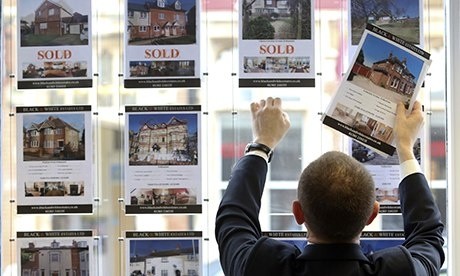What do rising rates mean for housing Jul 27 2004
Post on: 19 Май, 2015 No Comment

How will rising interest rates affect housing prices?
July 27, 2004: 1:06 PM EDT
By Sarah Max, CNN/Money senior writer
BEND, Ore. (CNN/Money) � Home buyers and sellers have been bracing for higher interest rates — and the subsequent cooling off of the market — for more than a year.
Yet, real estate seems to keep going and going and going.
In May, the median price for existing single-family homes reached $183,600, according to the National Association of Realtors (NAR), even as mortgage rates had begun ticking higher. In May 2001, by comparison, the national median was $145,000.
Prices in some markets have more than doubled over the past few years. Between the first quarters of 2001 and 2004, median prices in Sacramento, Calif. went from $161,500 to $277,900. In and around West Palm Beach, Fla. median prices went from $139,400 to $267,000.
The average price of an apartment in Manhattan, meanwhile, is now more than $1 million, according to New York-based real estate brokerage Douglas Elliman and appraisal firm Miller Samuel.
That low interest rates have been the driving force behind real estate’s unprecedented rise is not a point of debate among economists. Quite simply, lower rates mean buyers can afford higher home prices.
It stands to reason, then, that the opposite would be true. Yet, many economists have been arguing that higher rates won’t hurt housing.
The reason interest rates are higher is that we are in a growing economy, said NAR chief economist David Lereah in a recent release. The thinking, is that rising salaries and stock market returns can create enough wealth to offset the negative effects of rising mortgage rates.
People are feeling much more financially secure, said Freddie Mac chief economist Frank Nothaft. Families who are more financially secure are much more likely to buy a big-ticket item, like a house.
Besides, mortgage rates are still near historic lows. Even though we’ve seen [rates] rise since March, 6 percent is an incredibly cheap rate, Nothaft added. He expects the 30-year fixed rate mortgage to gradually increase to 6.5 percent by the end of the year and hold steady through 2005, even as the Federal Reserve Board increases short-term rates.
Others aren’t nearly so optimistic.
There has never been a run up in home prices like this, said Dean Baker, co-director of the Center for Economic and Policy Research.
Historically, rental prices and home prices have increased at about the same rate as inflation, he said. Over the past few years, though, home prices have been hugely out of line with rental prices and the overall rate of inflation.
As with all bubbles, said Baker, buyers are ignoring fundamental values and buying simply because they think prices will continue to go up. The psychology is similar to that seen in the stock market in the late 1990s, he said, but that can change with higher rates.
As you get higher interest rates renting is going to look better than buying, Baker added.
In a recent report called The U.S. Housing Bubble — The case for a home-brewed hangover, HSBC Securities U.S. economist Ian Morris also made the case that home prices are out of whack when compared to rental prices, income and other key indicators.
Home prices, he warned, could decline by 5 percent to 10 percent nationally over the next five years. Expectations of future house price appreciation are spectacularly, and unrealistically, high, he said.
The effects may vary
Ultimately, home prices reflect the overall economic strength of a market, said David Stiff, director of economic research for Fiserv Case Shiller Weiss, though there many other factors that can affect home prices. (See Why some markets are hot. )
I’d be most concerned in places where housing affordability is an issue because the effects of rising interest rates are even more pronounced, said Stiff.
In other words, higher rates may not mean as much to buyers in South Bend, Ind. as they do to buyers in San Francisco.
Median home prices in South Bend were recently $82,000 according to the NAR, while the median household income was about $40,500, according to 2002 U.S. Census Bureau estimates for St. Joseph County.
Assuming a buyer can put down 20 percent � or $16,500 � the monthly payment for principal and interest would be $392 at the current 6 percent rate.














